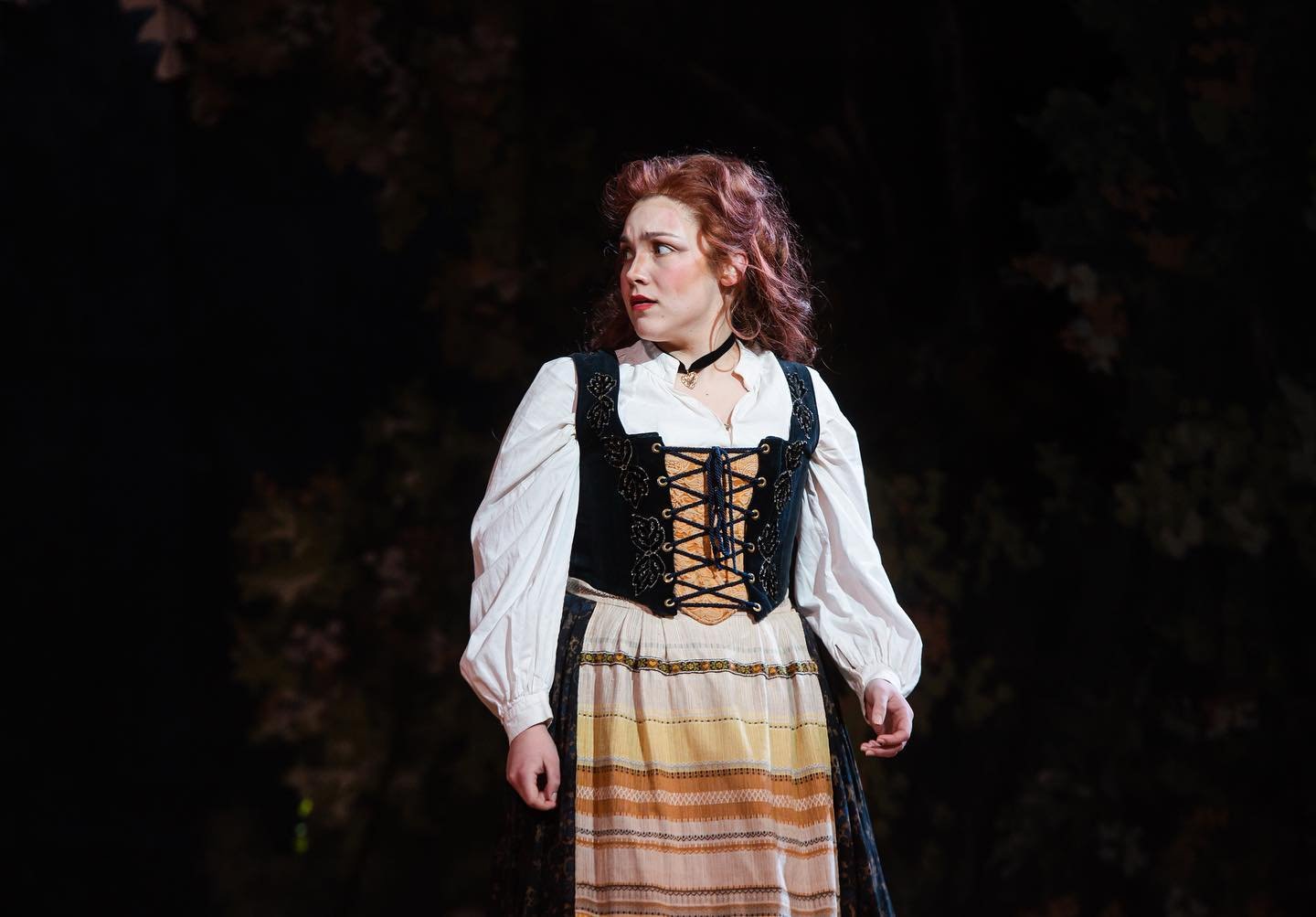joseph newsome, voix des arts
Soprano Margaret Ann Zentner’s portrayal of Servilia was similarly characterized by dramatic sensitivity allied with musical prowess. Distinguished by consistent tonal beauty, her vibrant singing in the Act One duet with Annio, ‘Ah, perdona al primo affetto,’ compellingly embodied the character’s anguish at learning from the man she loves that Tito has chosen her to be his empress. Zentner sang Servilia’s Act Two aria ‘S’altro che lagrime per lui non tenti’ with judicious vehemence, communicating the meaning of the text with unmistakable cognizance of its importance to the opera’s dénouement. Also to the young soprano’s credit was her unfailing fluency in Mozart’s musical language. The quality of Zentner’s performance reminded listeners accustomed to hearing lesser voices in the rôle that Servilia was sung in years past by artists of the ilk of Giulietta Simionato, Lucia Popp, Catherine Malfitano, Edith Mathis, Helen Donath, and Barbara Bonney.
barry salwen, cnvc
The second opera, Ravel's L'heure espagnole was delightful. Ravel brought comic flair to the music and from the first notes, his rich harmonic language gave a feast to the ear. The set was now redesigned into the clockmaker's shop where the hijinks unfolded. Margaret Ann Zentner entertainingly carried the role of Concepción, the wife-of-the-wandering-eye. Her character, rather than flirtatious, was continually bemused as her poet-lover Gonzalve kept launching into versifying, making no move to enjoy their brief time together in other ways. Her facial expressions were delightful; they also illustrate the capability of the streaming medium – of course already well-known via HD broadcasts – as these nuances would not have been seen by an audience at any distance.
peter perret, cnvc
Among the many other lovely voices in this all female cast, I was particularly impressed by Fletcher Fellow Margaret Ann Zentner, who has a spectacular soprano voice that brightened the role of Suor Genovieffa, the common sense nun who seemed to be Angelica's confident.
Joseph Newsome, Voix des Arts
A participant in UNCSA’s Fletcher Fellows program, soprano Margaret Ann Zentner portrayed Suor Genovieffa with glistening, focused tone and unaffectedly youthful acting, conveying the sister’s naïvété and kind disposition without saccharine exaggeration. She sang ‘O sorelle, sorelle, io voglio rivelarvi che una spera di sole’ with warmth and wonder, her top A aptly radiant. Zentner voiced ‘O sorelle in pio lavoro’ and ‘Soave Signor mio, tu sai che prima d ora nel mondo ero pastora’ with graceful zeal and a timbre that recalled the voice of the young Mirella Freni, exhibiting complete mastery of the art of imaginatively inhabiting a rôle, musically and dramatically.
Joseph Newsome, Voix des Arts
Soprano Margaret Ann Zentner was a Linda who reminded the audience that, although the part was sung in the opera’s sole Metropolitan Opera production by Lily Pons and was associated later in the Twentieth Century with the light voices of Margherita Carosio and Margherita Rinaldi, the eponymous heroine was sung on the opera’s first widely-available studio recording by Antonietta Stella, a singer more renowned for performances of Verdi and Puccini rôles than for her forays into bel canto. A particular pleasure of Zentner’s performance was hearing Linda’s music sung by a voluptuous voice.
Brightening the stage with her first entrance in Act One, Zentner sang ‘Ah! tardai troppo, e al nostro favorito convegno io non trovai’ strikingly, the character’s amiable disposition cascading beyond the footlights. Her performance of Linda’s best-known number, the cavatina ‘O luce di quest’anima,’ was the effervescent expression of a young girl’s excitement rather than a singer’s display of vocal prowess. Similarly, Zentner sang ‘Son più misera di te’ in the duet with Carlo bewitchingly but straightforwardly. The voice soared in the Gran Preghiera, the words felt rather than merely sung.
Lynn Felder, CNVC
The female characters were particularly compelling. Celia, richly sung by Zentner, while put upon by both Volpone and her husband, nevertheless finds the agency to choose her own way and her own love.
Zentner and Alston, as Bonario, shared a gorgeous duet in Act II, "Bonario? Yes. Is she gone?" Alston was appealing as the idealist son of the scheming Corvina. These two were charming together as the young lovers.





